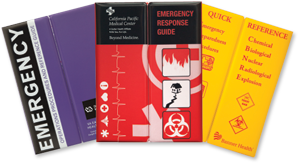Written by: Justin Stawser, The Daily Item, Pa. December 6, 2022
(TNS) – Police chiefs and law enforcement officials from around the Valley stressed the importance of managing mental health for those tasked with enforcing the law.
“Mental health for officers is very important,” said Selinsgrove Police Chief Shanee Mitchell. “So often we deal with the problems of others and we forget about ourselves. Dealing with highly critical incidents and often death can take a toll on anyone. There are things that I have dealt with in my career that I will never forget.
“As officers, we need time to collect our thoughts and clear our minds as much as possible. We wear many hats in this profession and it can take a toll on you. One minute you’re a marriage counselor, then you’re a disciplinarian, a law enforcement officer the next, etc. The list goes on.”
As death by suicide has grown across U.S. demographics, more officers have died by suicide than in the line of duty, according to data included in a 2020 Congressional report.
The National Alliance on Mental Illness (NAMI) reported that police officers report much higher rates of depression, burnout, post-traumatic stress disorder (PTSD), and anxiety than the general population. In addition, almost 25 percent of police officers have experienced suicidal ideation at least once in their lifetime.
In Selinsgrove, the department has a fairly new employee assistance program where officers and their family members can seek help or counseling. This is something that they plan to build on but it does take time, said Mitchell.
When officers are called out, they depend on the callers or family members to inform them if this is a mental health issue. They ask about past incidents and the persons’ state of mind, she said.
“I am also in the process of getting the members of our department trained for crisis intervention and de-escalation,” she said. “Both the Penn State Justice and Safety Institute and the PA State Police offer the training. It’s just a matter of scheduling and having the manpower on the dates offered. I believe that it is imperative that our officers have this training in order to identify what could possibly be a mental health emergency rather than a hostile individual and for them to learn how to de-escalate such situations.”
Chief didn’t seek services
Mitchell said she never sought mental health services related to the job, but did when she was diagnosed with stage 3 breast cancer.
“It took time for me to come to grips with it and in the beginning, I did not have time to grieve,” she said. “It was after things slowed down a bit that I realized that I was in a state of shock and disbelief. I then took advantage of the services offered for cancer support. Those services helped a lot. It helped me realize that I was not alone and it took away the guilt that I was carrying. Just recently I made a visit to the Journey of Hope here in Selinsgrove which is a cancer support group and I left there full of joy. To see so many people come together to support one another is a beautiful thing. As they shared their stories I knew how much bravery it took and it truly warmed my heart.”
However, she noted, there were times in her career when she should have sought help for job-related issues, such as her first homicide case, her first deceased infant and having a gun pointed in her face four days before her wedding.
“This was 20 years ago and mental health was not yet being discussed on a big platform so in a way it was looked at as being weak,” said Mitchell. “Back then we were pushed to just get over it. I think that this is the issue that law enforcement faces. None of us want to be looked at as weak. It is especially testing for females because we are already looked at as being emotional and sensitive. That also trickles down from me being raised in a boarding school where you are taught not to be vulnerable.”
Mitchell encourages others to seek help if they need it.
“I’m in no way a professional in mental health but I do have an open door policy for my officers to come and talk if they need to,” she said. “If I feel during that talk that they need more help than I can handle then I recommend it.”
Mental health is ‘crucial’
Sunbury Police Chief Brad Hare said the mental health of an officer is “very important.”
“Officers are exposed on a daily basis to things the normal person is not exposed to,” said Hare. “Having the mental health of an officer stable is crucial to the day-to-day operations of any police department.”
Municipal Police Officers’ Education and Training Commission Act 59 gives officers the ability to come to their department heads to get proper mental health care after traumatic events and also it gives the ability for department heads to have officers evaluated after traumatic events.
There is also mandatory de-escalation and use of force training for new officers but also used for veteran officers, said Hare.
Pennsylvania passed Act 59 into law in 2020, a police reform bill that, among its provisions, provides cost-free evaluations for PTSD and a structure for treatment, leave and desk duty until a medical professional clears an officer diagnosed with the disorder.
“We also have the ability to reach out to other agencies like ( Pennsylvania State Police ) for their networking for critical stress events,” he said.
Currently, if officers are called out for mental health issues the county subcontracts those services and they are contacted for evaluations, he said.
“We currently have year-to-year training and some of that has to deal with the public and mental health issues,” said Hare. “Officers are constantly monitored on all of their responses and especially mental health calls to see if there is any better we can do or learn from.”
‘Sound mental health’
Northumberland County Detective Degg Stark said that “being of sound mental health is extremely important to those performing law enforcement functions and the PA Municipal Police Officer training standards require a thorough mental health screening of all police applicants prior to hire.
Some agencies require follow-up screenings after certain intervals. The initial screening process generally involves a series of written tests followed by a comprehensive in-person interview with a mental health professional, he said.
Police are trained to notify their superiors if they believe they are in personal need of counseling, said Stark.
“Since police work so closely with one another, they are often in a good position to see a sudden or concerning change in an officer’s behavior and they would be required to report that to superiors,” said Stark.
“Many, if not all, police agencies have specific polices in place which will define what actions will occur according to a given set of circumstances.”
Stark said he made certain he always talked to fellow officers, family members, a family physician or another trusted person.
“The key is to express your feelings, and to openly speak about the incident bothering you,” said Stark. “It was always helpful to me to engage in exercise and activities like hiking, biking and kayaking with family members and friends.”
‘Just listen’
Shamokin Police Chief Raymond Siko III said mental health for officers is “extremely important.”
“There are several services that are available to our officers and one specific to first responders,” said Siko.
When called out, the initial information and observation should be obtained during the conversation with the 9-1-1 center, he said.
To determine whether someone is having a mental health issue, Siko said, “Just listen, listen to the way the person is talking to you and how they present themselves to you.”
He said, “Notify crisis to have a representative respond to the scene, try to keep the person calm depending on what type of crisis they are having, explain to the person there is help available and offer transport to a hospital for services, most important, just listen, let them talk.”
The department itself has guidelines that can be followed by officers and one of the most important tools an officer can have when dealing with a crisis is common sense, said Siko.
Pennsylvania State Police have the Members Assistance Program, a 24/7 network of troopers trained to provide confidential peer-based assistance face-to-face and over the phone, be it voluntary or mandated.
Avenues to mental health treatment are available through benefits typical of a law enforcement job. There are crisis hotlines for immediate help, like 1-800-COPLINE and the National Suicide Prevention Lifeline at 1-800-273-8255.
If you or someone you know is in crisis, call the National Suicide Prevention Lifeline at 1-800-273-TALK (8255) or text “HELLO” to the Crisis Text Line at 741741.
CNHI reporter Eric Scicchitano contribute to this report.
©2022 The Daily Item (Sunbury, Pa.). Distributed by Tribune Content Agency, LLC.
This article appeared on Emergency Management News and is shared with consent: https://www.govtech.com/em/safety/officers-stress-importance-of-managing-their-mental-health







